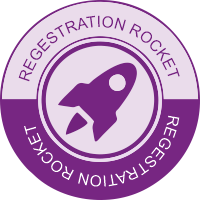Registration Rocket
GST RECONCILIATION
GST reconciliation involves matching sales and purchase data between taxpayer records and GST returns to ensure accuracy and compliance with tax regulations.
GST Reconciliation
GST reconciliation is essential for business compliance with tax regulations, ensuring accurate financial management by aligning Goods and Services Tax data. It involves matching taxpayer records with supplier data on the GST portal, such as GSTR-1 (outward supplies) and GSTR-2A (inward supplies), to ensure accuracy and adherence to GST laws.
Importance of GST Reconciliation:
- Accuracy in Tax Payments: Helps identify discrepancies between sales and purchase data, ensuring correct GST payment and minimizing overpayment or underpayment risks.
- Preventing Legal Issues: Avoids legal complications and penalties from incorrect tax reporting or non-compliance.
- Claiming Input Tax Credit (ITC): Ensures businesses receive credits for taxes paid on purchases, reducing overall tax liability.
- Smooth Business Operations: Identifies and rectifies errors early, reducing disputes and delays.
How GST Reconciliation Works:
- Collection of Invoices: Gather sales and purchase invoices.
- Data Entry: Enter data into GSTR forms, like GSTR-1 and GSTR-2A.
- Matching Data: Compare GSTR-1 with GSTR-2A, flagging discrepancies.
- Correction and Rectification: Communicate with suppliers to resolve issues.
- Finalizing Returns: Finalize returns and make necessary payments once discrepancies are resolved.
Common Challenges:
- Large Volumes of Data: Manual reconciliation can be difficult for high transaction volumes.
- Mismatched Invoices: Variations in invoice details can cause discrepancies.
- Vendor Cooperation: Suppliers may delay in providing corrected invoices.
- Changes in GST Rates: Reconciliation can be complex with rate changes across tax periods.
Conclusion:
GST reconciliation is vital for compliance, accurate tax payments, and smooth operations. While challenging, it can be managed with accounting software, accurate records, and regular reconciliation, leading to increased efficiency, reduced tax liability, and better adherence to GST laws.
Document Required
GST Reconciliation (Upto 3 Months)
GST Reconciliation (Upto 3 Months)
Frequently Asked Questions
Find answers to common questions about our services.

What is GST Reconciliation, and why is it important?
GST Reconciliation involves matching your business's sales and purchase data with the data filed in GST returns. It's crucial to avoid discrepancies, ensure accurate tax filings, and prevent penalties.
How does Registration Rocket assist with GST Reconciliation?
We offer a comprehensive reconciliation service that includes reviewing your financial records, identifying discrepancies, and ensuring that all GST returns are accurately filed.
What documents are needed for GST Reconciliation?
You'll need your sales and purchase invoices, GST returns (GSTR-1, GSTR-2A, GSTR-3B), and relevant financial statements. We guide you on gathering and organizing these documents.
How often should GST Reconciliation be done?
GST Reconciliation should ideally be done monthly, before filing your GST returns. Regular reconciliation helps maintain accuracy and avoid last-minute issues during annual returns.
What happens if discrepancies are found during GST Reconciliation?
If discrepancies are identified, we help you correct them by adjusting your returns or filing amendments. This ensures compliance and reduces the risk of penalties or audits.
Can Registration Rocket handle GST Reconciliation for multiple years?
Yes, we can assist with GST Reconciliation for both current and previous financial years, ensuring all your records are up-to-date and compliant with GST regulations.




